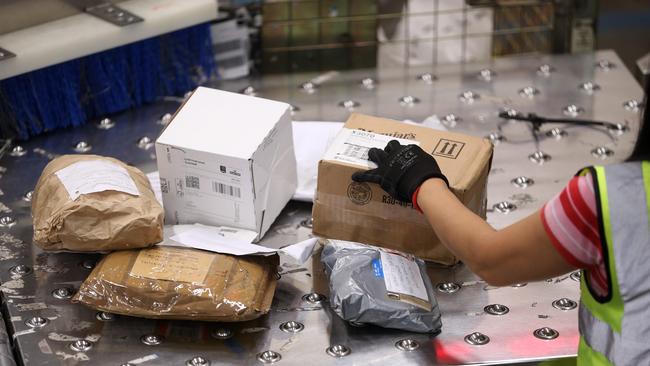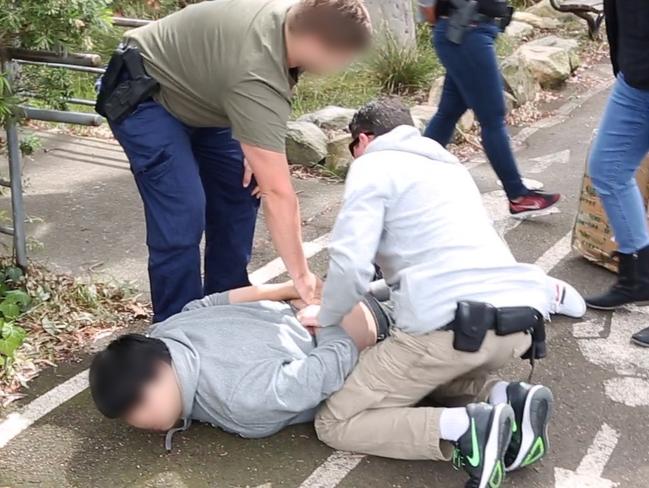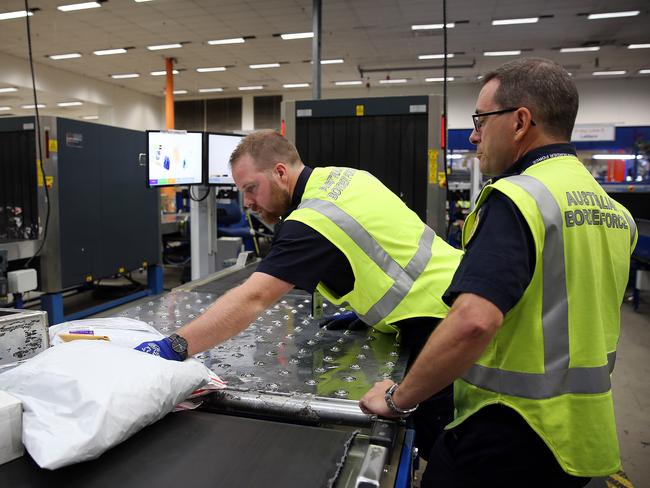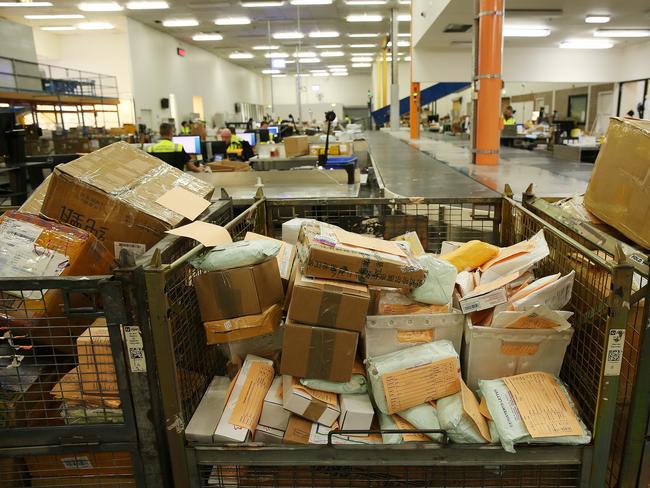Students offered quick cash to run drugs for organised crime syndicates in China
STUDENTS giving their addresses to organised crime syndicates in China have contributed to one of the biggest national drug mail-outs in history.

National
Don't miss out on the headlines from National. Followed categories will be added to My News.
EXCLUSIVE
STUDENTS are being offered up to $500 to provide their mailing home addresses indirectly to organised crime syndicates in China.
The scheme is contributing to one of the biggest national mass mail outs of cocaine, meth and other drugs ever seen by authorities.
And the rise could indicate the resurgence in suburban backyard clandestine drug labs with a significant amount of the illicit mailings coming in as chemical precursors and not a finished product.
Australian Border Force officers have now been dispatched to Hong Kong to liaise with counterparts over the alarming trend of recruiting youth as drug collectors, mostly university students but some as young as 17 years, and the “shot gun” nature of mass drug postings.
News Corp Australia has learned ABF identified the trend at their huge facility in Clyde in Sydney’s west where 75 per cent of all surface mail entering Australia from overseas has to first land for screening before being forwarded to all states.
Despite receiving up to 120 million mail items — of which 42 million were screened with x-ray or had contraband sniffing dogs run over them — officers have been making a record 185-200 contraband parcel detections a day.

RELATED: How police cracked Australia’s largest drug syndicate
It was from here, ABF intelligence uncovered a pattern in origins in China and elsewhere including the British capital London to flag the national issue of students, notably in Sydney and Melbourne’s western suburbs providing their addresses to organised crime groups that Australian law enforcement have been pursuing.
ABF International Mail and Cargo Clearance Superintendent Phillip Anderson said the rise in criminal mail was staggering as was the increase in contraband size.
“So where before we maybe were getting half a kilo to 1kg detections now its 5kgs to 10kgs which is, in a mail environment, extraordinary,” he said.
He said traditionally February was a quiet month with Chinese New Year particularly, leading to literally millions of less mail items coming into Australia particularly from China.
But last month they hit a record for detections from the less mail volume.
Generally much of the ephedrine, meth and amphetamines were coming in from southern China, cocaine from central and South America and firearms out from the United States and Europe.
“Mail has gone up and detections have gone up, there is direct relationship,” he said.

“The information out in market is these things carry a high price and in the basic law of supply and demand, market demand, there is a fair amount of it because the prices are quite high.
“It’s always busy here and its increasing, we are probably looking at 5-10 per cent increase in mail volumes in coming years and when you’re talking in-the-millions, that’s a lot.”
He said it was no coincidence the rise in drug mailings happened before a major music or other festival and national Outlaw Motorcycle Gang (OMCG) bikie gatherings.
Once a student has agreed to receive a parcel for third parties, drugs are dispatched across the country to those addresses from China before Australian-based criminals then arrange with the mostly unwitting drug-courier students a time to collect the unopened parcels.
Many students have been allowing their address to be used for multiple drug deliveries for months.
The alarming rise in mailed precursor drugs prompted the federal body to warn state police of the probable rise in clandestine drug labs in their respective states.
In September, a Parramatta HSC student was intercepted collecting a package found to contain approximately 5kg of ephedrine.

Ephedrine is worth about $80,000 a kilo but can make 14kg of ice with just a gram of the drug selling on the streets for up to $600.
The student subsequently admitted he had previously been paid to collect several packages; the goods were seized and the student and his parents warned that if he was caught again he would be prosecuted.
Other students have equally been warned off the pledges of easy money which they could face prosecution for.
Also late last year 23-year-old Sydney man Damian Thomas was sentenced to 18 months jail for aid and abetting a drug operation for his role in recruiting foreign students to collect parcels over a two-year period as part of a criminal syndicate.
The practice of recruiting students to take parcel delivery of drugs was first detected four years ago but a series of arrests and other measures had seen it dissipate before now.
Supt Anderson praised his officers and technology for the rise in successful detections.


